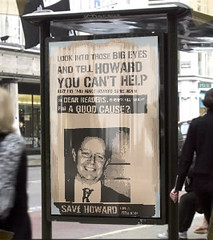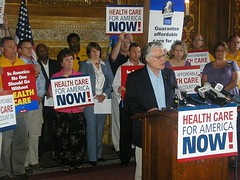I have written previously about the Fourteenth Amendment as an example of a law that declares a legal principle of equality but does not extend to defining a quantitative measure of the level of equality that is expected. This amendment is applicable to current political debates for two reasons. First, that we are grappling with the proper way to construct laws to protect the liberty and equality of all citizens. Second, this amendment is referenced in some debates about how to deal with the issue of illegal immigration.
Section 1 of the amendment declares the principle – and it is a debate about what it means to be “born or naturalized in the United States and subject to the jurisdiction thereof” that is applicable to some proposed legislation related to illegal immigration.
All persons born or naturalized in the United States and subject to the jurisdiction thereof, are citizens of the United States and of the State wherein they reside. No State shall make or enforce any law which shall abridge the privileges or immunities of citizens of the United States; nor shall any State deprive any person of life, liberty, or property, without due process of law; nor deny to any person within its jurisdiction the equal protection of the laws.
Section 2 specifies the consequences of abridging the equality specified in the first section.
Representatives shall be apportioned among the several States according to their respective numbers, counting the whole number of persons in each State, excluding Indians not taxed. But when the right to vote at any election for the choice of electors for President and Vice President of the United States, Representatives in Congress, the Executive and Judicial officers of a State, or the members of the Legislature thereof, is denied to any of the male inhabitants of such State, being twenty-one years of age, and citizens of the United States, or in any way abridged, except for participation in rebellion, or other crime, the basis of representation therein shall be reduced in the proportion which the number of such male citizens shall bear to the whole number of male citizens twenty-one years of age in such State.
Some people have argued that the non-outcome-based approach to the problem of abridging voting rights is what lead to widespread discrimination against blacks in the south for a century after this amendment was adopted. I think that it would be more accurate to say that failure to impose the declared penalty was more at fault for this practice. People cannot have their inner thoughts and desires regulated by written laws, but they generally will mold their actions to their own best interest. If the penalty of reduced representation were applied to the states that were using intimidation and Jim Crow laws to prevent blacks from exercising their civic rights I have little doubt that those states would rather quickly have found the motivation necessary to end such practices in order to have a full voice in the actions of the federal government without needing the creation of some of the civil rights legislation of the 1960’s that focused on equality of outcomes rather than universal principles of equal protection.



